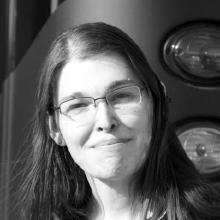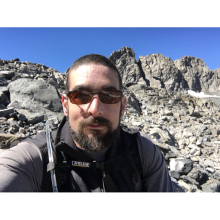Abstract
Everything we build is built upon a substrate. Even the cloud computing we directly, or indirectly, use every day is built upon a substrate. In computing, we often call this substrate Bare Metal, and the closer you get to it, the more potential you can unlock... if you're willing.
A secondary trend is occurring which we cannot ignore! This trend is being driven by the continual need for greater performance and further abstraction, enabled by the relative ease to design specialized hardware to meet specific challenges, which is pushing many problems closer to the physical metal. It is not just GPUs in a physical server, but FPGA, and highly specialized Data Processing Units are pushing the boundaries such that now we have computers inside of computers... more so than we did just a few years ago.
To keep our sanity and quality of life, we must automate! In this presentation we will cover:
* The competing forces (requirements), and some use cases where Bare Metal is vital.
* Learn about emerging trends that are pushing the boundaries of hardware today.
* The importance of automation when dealing with such systems at scale, and how tools like Ironic can help you today.
Interview:
What's the focus of your work these days?
For several years, my focus has been the automation of bare metal systems deployment. While we see increasing big box vendor standardization, which is a good thing, we're also seeing an increase in hardware designed for specific problem vertials, which continues to keep the area relevant. Overall this area also requires merging both operations methodology and technology in order to maximize impact and business value.
What's the motivation for your talk at QCon San Francisco 2023?
One of the best moments in my career was when I made a random connection at a conference with an engineer who happened to work long hours in a data center. I had been there myself, so I understood the hours and pain. It didn't hit me until about ten minutes into the conversation just how much my own work had improved his quality of life. Yet technology is constantly evolving to meet specific challenges, so the work never ceases to make things easier, as physical hardware is always a constant.
How would you describe your main persona and target audience for this session?
I am an engineer who started her journey in data centers with the wiring of the network, who now works on software to automate physical servers to enable them to dance. Along this journey, I have both led, and managed teams, and seek to share knowledge to help others.
My target audience is fellow leaders of infrastructure teams, and engineers who work or who are interested in the hardware infrastructure space.
Is there anything specific that you'd like people to walk away with after watching your session?
I hope attendees leave my talk understanding that hardware remains a relevant area to many, an understanding of the trends which are complicating this space further, and an inspiration for why they should invest in automation.
Speaker

Julia Kreger
Senior Principal Software Engineer @Red Hat
Julia has had a long career both solving tough challenges and leading others to work together and solve the tough challenges before them. Her day job is as a Senior Principal Software Engineer at Red Hat where she works on OpenStack with a focus on Bare Metal systems deployment and management. Her other day job is as Chair of the Open Infrastructure Foundation where she works to ensure we have a home for Infrastructure management tooling. She is passionate about both of these aspects as she long ago toiled in data centers, and has firsthand seen the massive quality of life improvement people can make through automation! When she is not in front of a computer, she can be found in Southern California with her wife, three cats, and a Corgi.







